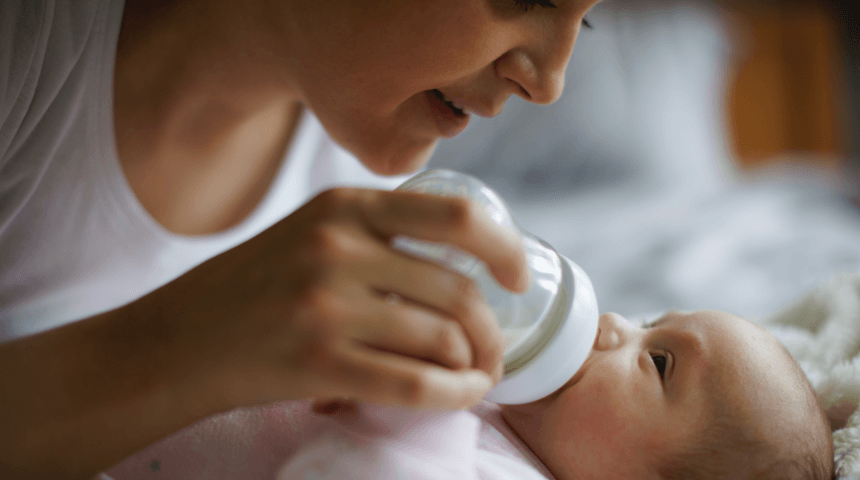If you suffer from abdominal pain, cramping and urgent bowel movements, you know how distressing that can be. IBS and IBD are terms that often are used interchangeably to describe those symptoms, but they aren’t the same.
How do you know if you have irritable bowel syndrome or inflammatory bowel disease?
Irritable Bowel Syndrome
Irritable bowel syndrome (IBS) affects the large intestine, and it is a chronic condition that you can learn to live with by making lifestyle changes. IBS doesn't cause changes in bowel tissue or increase your risk of colorectal cancer like IBD does. The most common symptoms include:
- Abdominal pain, cramping or bloating because of a bowel movement
- Changes in appearance of bowel movement
- Changes in frequency of bowel movements
Inflammatory Bowel Disease
Inflammatory bowel disease (IBD) covers a group of autoimmune conditions that destroy the gastrointestinal tract. The most common of these diseases are Crohn’s disease and ulcerative colitis. If you have Crohn’s disease, the deeper lining of your digestive tract — any section from your mouth to your anus — is inflamed. With ulcerative colitis, you experience inflammation and sores along the superficial lining of your large intestine. IBD can be difficult to treat. Symptoms common to both Crohn’s disease and ulcerative colitis include:
- Diarrhea
- Fatigue
- Abdominal pain and cramping
- Blood in your stool
- Loss of appetite
- Weight loss
Causes of IBS and IBD
The causes of IBS and IBD aren’t fully understood, but researchers have found some factors that may contribute to them. For IBS, these include:
- Muscle contractions in your intestine
- Abnormalities in the nerves of your digestive system
- Severe infection
- Stress during childhood
- Changes in gut microbes
The factors that appear to contribute to IBD include:
- Immune system malfunction
- Heredity
- Environmental factors
Food and stress also can trigger IBS and IBD. You might find that your symptoms get worse when you consume certain foods or beverages, including wheat, dairy products, citrus fruits, beans, milk and carbonated drinks.
Are You at Risk for IBS and IBD?
IBS is more common than IBD. It affects 10 percent to 15 percent of the U.S. population. You are more likely to have IBS if you are:
- Young
- Female
- A member of a family with a history of IBS
- Suffering from anxiety, depression or other mental health issues
About 2 million Americans have IBD. You are more likely to have IBD if you are:
- Younger than 30 or older than 50
- White
- A close relative (parent, sibling or child) of someone with IBD
- A cigarette smoker
- Of Jewish descent
When Should You See a Doctor?
If you are experiencing persistent changes in your bowel movements for more than two to three weeks or you have any of the symptoms of IBS or IBD, it’s time to see a doctor. Your doctor may order blood tests, stool samples, X-rays, CTs, MRIs, endoscopies or colonoscopies to confirm a diagnosis of IBS or IBD. IBS will be your diagnosis, based on your symptoms, once everything else is ruled out. IBD must be diagnosed with a colonoscopy.
IBS and IBD can be treated, but they cannot be cured. If you have IBS, your doctor will treat your symptoms with medications, diet modification, stress reduction, acupuncture and hypnotherapy (which is used to bridge the gut-brain connection). Diet modification involves following a low FODMAP diet for six to 12 weeks and then reintroducing foods that were eliminated under the care of a dietitian to see if they can be tolerated.
If you have IBD, your doctor will prescribe immunosuppressant medications or biologics, which often are administered by injections or IV infusions. These medicines promote gut healing and decrease inflammation, which can put you in remission.
Living with IBS and IBD
If you suffer from IBS or IBD, a good support system is critical. That support can come from family members, online groups or physical community groups.
With a few accommodations and following treatment, you can lead the life you want if you have IBS or IBD. Living well with IBS means committing to complying with treatments. This can be difficult when our lives revolve around socializing and food, but it is vital. With some planning, you can minimize interruptions to your life.
Choose to Stay in Touch
Sign up to receive the latest health news and trends, wellness & prevention tips, and much more from Orlando Health.
Sign Up




